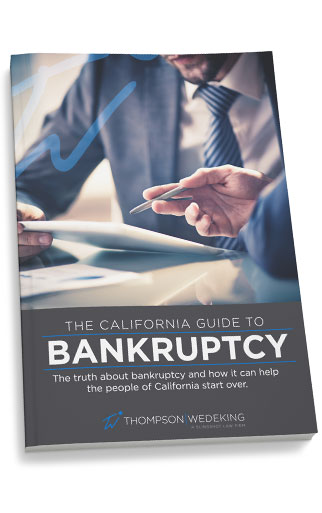San Diego Bankruptcy Attorney
In San Diego, Chapter 13 bankruptcy debt relief filing is generally employed to stop foreclosure on your home. For this to be effective, the Chapter 13 must be filed before the date your property is set for sale. After the Chapter 13 is filed, a repayment plan will be proposed by which you can catch up on your late mortgage payments. You will also be obligated to resume payments on your mortgage and your mortgage company must accept your payments under the Bankruptcy Code.
If you are looking at a San Diego foreclosure, our bankruptcy attorneys can file a Chapter 13 debt relief plan that will help you regain your financial freedom.
Chapter 13 debt relief is a very powerful tool under the law to stop foreclosure. This plan allows you to immediately stop the foreclosure, catch up on missed mortgage payments, and keep your home! Chapter 13 bankruptcy also stops car repossessions and under certain circumstances will allow you to get your car back if it has already been repossessed. Because the debtor has proposed a Chapter 13 debt relief repayment plan, creditors will no longer be able to harass you and your family. A San Diego Chapter 13 debt relief stops all collection activity, which remains in effect until a Bankruptcy Court says otherwise.
All San Diego bankruptcy attorneys will agree that Chapter 13 foreclosure debt relief is about reorganizing an individuals debt (if you are a business entity you can file a Chapter 11). This reorganization allows the consumer to make payments on some or all of their outstanding debt. The upside of the Chapter 13 bankruptcy is that your assets and belongings are protected. Many San Diego bankruptcy attorneys linked Chapter 13 to debt consolidation. Under the plan, you will make your payments to the bankruptcy trustee who will then administer the payments to your creditors according to the bankruptcy plan.
Our San Diego bankruptcy attorneys can help individuals file Chapter 13 to stop foreclosure under the following criteria:
- You have a stable and regular income
- You have excess income over and above your living needs
- Your secured debt does not exceed a certain level
- Your unsecured debt does not exceed a certain level
Your mortgage company will be very aggressive in trying to collect any mortgage or home loan debt owed. You need an aggressive bankruptcy lawyer to fight back. For over 35 years, Thompson | Wedeking has helped thousands of individuals in San Diego, Southern California and California stop foreclosure and get the fresh start and home loan relief they deserve. Call our office today at 619.615.0767 for more information.


